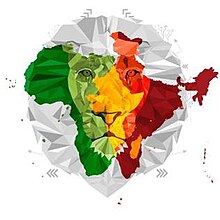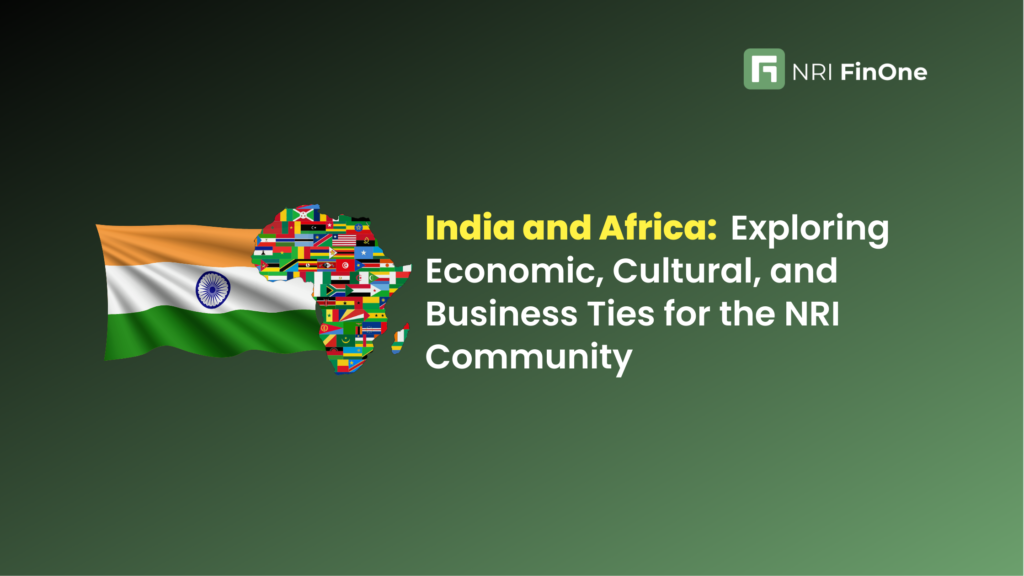Africa and India have a unique relationship that is more than just economic; it is founded on centuries of cultural, social, and business links. With more than 4 million people of Indian descent living in Africa continent, the Indian diaspora plays an active role in several African economies. From South Africa’s bustling Indian communities to East Africa’s thriving business hubs, Indians overseas have built a name for themselves as entrepreneurs, professionals, and cultural ambassadors.
A Historic Bond with Cultural Imprints
Indian populations initially arrived in Africa centuries ago, particularly during British colonialism, when Indians were sent to Kenya, Uganda, and Tanzania to work on railway construction. This early migration resulted in the formation of communities, mainly Gujarati and Punjabi populations, who quickly expanded beyond labor positions to dominate commerce and economic sectors throughout East Africa. In places like Nairobi, Dar es Salaam, and Kampala, Indian communities today handle a range of companies, from wholesale trade to manufacturing, and contribute considerably to the local economies. Some of the prominent active Indian companies are Bharti Airtel, Tata, Hero Motocorp, and Godrej which have significant operations in the region.
Today, these people maintain their traditional traditions while assimilating into African societies. For example, in Kenya, the annual Diwali festivities are large-scale events attended by people from all backgrounds. Similarly, in South Africa, which has one of Africa’s largest Indian populations (about 2 million), places such as Durban are noted for their distinct Indian flavor, which can be found in local food, music, and festivals.
Economic Partnerships Backed by Community Influence
India is Africa’s third-largest commercial partner, with bilateral trade totaling around $98 billion in recent years. Let’s look at some specific examples that demonstrate how Indian communities are crucial to this relationship.
- Healthcare in Nigeria: Indian doctors and healthcare professionals are well-represented in Nigerian cities such as Lagos, Abuja, and Kano. Hospitals founded by Indian-origin practitioners, such as Primus and Apollo Clinics, provide economical and high-quality healthcare services, thereby helping to close Nigeria’s healthcare gap. Indian medical experts in Nigeria also play an important role in telemedicine by providing expertise in remote areas.
- Agribusiness in Tanzania: Indian corporations and local entrepreneurs of Indian heritage are involved in Tanzania’s agricultural sector. Shree Hindu Mandal in Dar es Salaam runs community-based agricultural projects that provide farmers with tools and expertise to increase crop productivity.
- Tech and Telecommunications in Kenya: Kenya’s tech-savvy populace and vibrant mobile economy have prompted major investment from Indian companies such as Infosys, Tech Mahindra, and Airtel. Airtel, with its enormous African customer base, provides affordable telecommunications to millions of Africans.
Strategic Partnerships: “Africa and India—Connected Beyond Borders”
Indian and African interests are well aligned in crucial minerals, pharmaceuticals, and energy security. African countries such as Namibia and South Africa have some of the world’s largest mineral deposits, which are critical for India’s technological and renewable energy projects. This reciprocal need for resources and technology has resulted in government-sponsored collaborations such as the International Solar Alliance (ISA) and agreements focusing on sustainable energy infrastructure.
For example, in Zambia, Indian-origin businesses are heavily involved in copper mining and related industries. Indian engineers and managers work alongside African counterparts, contributing skills and expertise to boost local industrial capacity.

Community Involvement in Education and Social Upliftment
Education is another sector where Indian communities contribute significantly across Africa. In Uganda, for example, the Indian Association and organizations like the Arya Samaj run schools and offer scholarships to local students, particularly for technical skills and vocational training. This focus on skills is aligned with Africa’s demographic profile, where over 60% of the population is under 25 years old. In a world where collaboration is increasingly necessary for sustainable development, the India-Africa relationship exemplifies how diaspora communities can be powerful drivers of economic and social progress.
“From the shores of the Indian Ocean to Africa’s savannahs, India and Africa are not just neighbors in geography but in growth and grit.”


